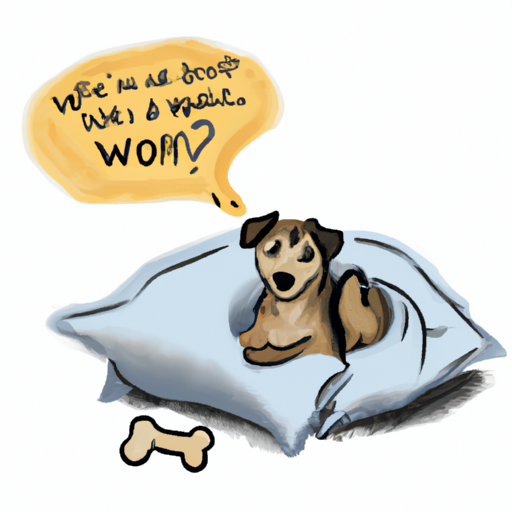Dogs are marvelous creatures, filled with quirks and behaviors that often leave us perplexed. One such behavior is “nesting,” a habit that dogs inherited from their wolf ancestors. But what is this nesting behavior and why do dogs do it?
Understanding Dog Behavior
Dogs, like their wolf ancestors, have certain behaviors that may seem puzzling to humans. These behaviors, however, are deeply ingrained in their DNA and offer valuable insights into their natural instincts and their mental and physical well-being. Nesting is one such behavior.
Nesting refers to the act of a dog pawing, digging, and circling in a particular area before settling down. This behavior is typically observed in their favored snoozing spots but can also occur on your favorite couch or even your bed.
The Evolutionary Perspective
From an evolutionary perspective, nesting has deep roots. Wild dogs and wolves often prepare their resting spots by trampling down tall grass or snow, making it more comfortable and suitable for them to rest. This also serves a secondary purpose of ridding the area of pests and tiny creatures that might disturb their sleep.
Your domesticated Fido may not need to worry about tall grass or snow in your living room, but that doesn’t stop them from instinctively exhibiting this behavior.
The Comfort Factor
Another reason why dogs nest is for comfort. Just as you fluff your pillow or adjust your blanket before sleeping, dogs nest to make their sleeping area more comfortable. They may paw, scratch, and circle around to fluff up the material of their bed or your couch, creating a cozy and warm spot to sleep.
This behavior can also be seen when they are about to give birth. Females will often create a ‘nest’ as a safe and comfortable space to deliver and care for their puppies.
The Safety Aspect
Nesting can also be a safety measure. In the wild, dogs would dig holes or find hidden spots to sleep, protecting them from predators or harsh weather conditions. While your home is a safe haven for your pet, they still carry this instinctual behavior.
The Emotional Connection
Finally, nesting can sometimes be a sign of emotional distress. If your dog’s nesting behavior is excessive, it might be an indication of anxiety or stress. In such cases, it’s best to consult with a professional to rule out any underlying issues.
Table of Common Reasons for Nesting
| Reason | Description |
|---|---|
| Evolutionary Habit | Traces back to their wild ancestors who needed to prepare their resting space. |
| Comfort | To make their sleeping area more comfortable. |
| Safety | A natural instinct to protect themselves from predators or harsh weather. |
| Emotional Distress | Excessive nesting might indicate anxiety or stress. |
FAQ
1. Is nesting a bad behavior?
No, nesting is a natural behavior for dogs and is generally not harmful.
2. Should I stop my dog from nesting?
Unless the nesting behavior is excessive or causing damage, there’s no need to stop your dog from nesting.
3. What if my dog is nesting excessively?
If your dog’s nesting behavior is excessive, it might be an indication of anxiety or stress. In such cases, consult with a professional.
4. Do all dogs nest?
Most dogs display some form of nesting behavior, but not all dogs. It can vary based on individual temperament and breed.
Understanding your dog’s behavior can help you better care for their physical and emotional needs, and strengthen your bond with your furry friend. So, the next time you see your dog nesting, you’ll know they’re merely following their natural instincts.



